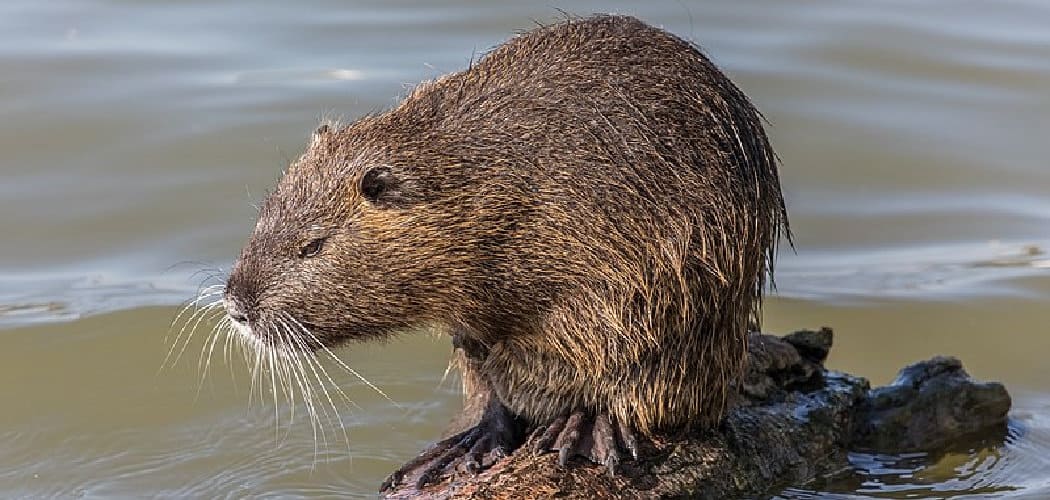The coypu, also known as the river rat, has a spiritual meaning that is often overlooked. This humble creature has great power and can teach us a lot about ourselves if we are willing to listen. Coypu reminds us to stay grounded, despite our circumstances and to enjoy life’s simple pleasures.
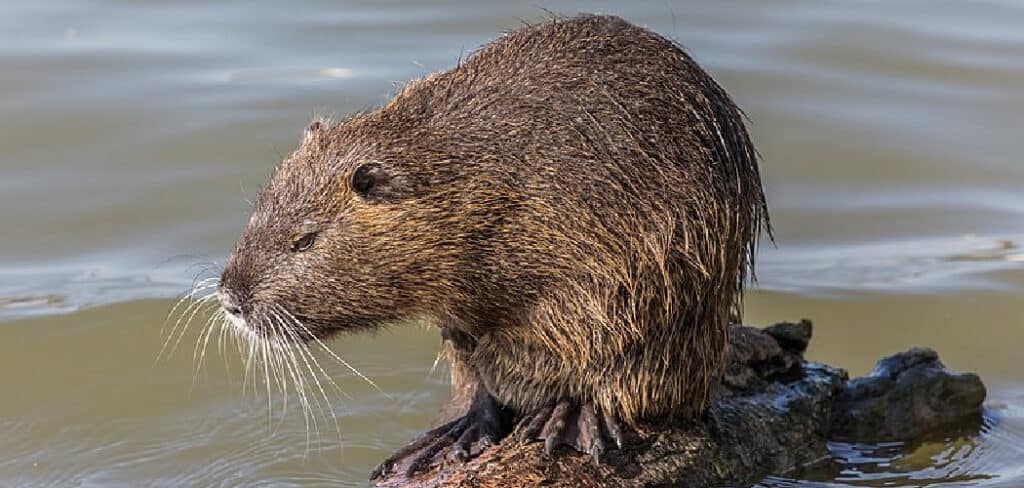
They also encourage us to be compassionate and forgiving, both of others and of ourselves. By honoring the coypu’s spirit, we can learn to live more peacefully and harmoniously with ourselves and with those around us. So keep reading to learn more about the coypu spiritual meaning.
Coypu Symbolism and Meaning
Coypu Native American Symbolism
The coypu is a native American animal that has a great deal of symbolism attached to it. For example, in some Native American cultures, the coypu is seen as a trickster figure, much like the fox in European folklore. As such, it is often associated with deceit and cunning.
However, the coypu is also seen as a symbol of good fortune and is often considered a lucky animal. This dichotomy reflects the Native American belief that both good and bad can come from the same source. In other words, the coypu is a reminder that even something that seems bad may ultimately have a positive outcome.
Whether you see the coypu as a trickster or a bringer of good luck, there is no doubt that this fascinating animal has a deep and complex symbolic meaning in Native American culture.
Coypu Eastern Symbolism
The coypu, also known as the river rat or nutria, is a large rodent that is native to South America. In recent years, the coypu has become an invasive species in many parts of the world, including North America and Europe.
The animal has been praised for its fur and meat, but it has also been vilified as a destructive pest. In some cultures, the coypu is seen as a symbol of good luck, while in others, it is considered to be a bad omen.
In Asian cultures, the coypu is often seen as a symbol of good fortune. The animal is associated with the Chinese zodiac, and it is believed that those who are born under the sign of the coypu will be blessed with good health and long life.
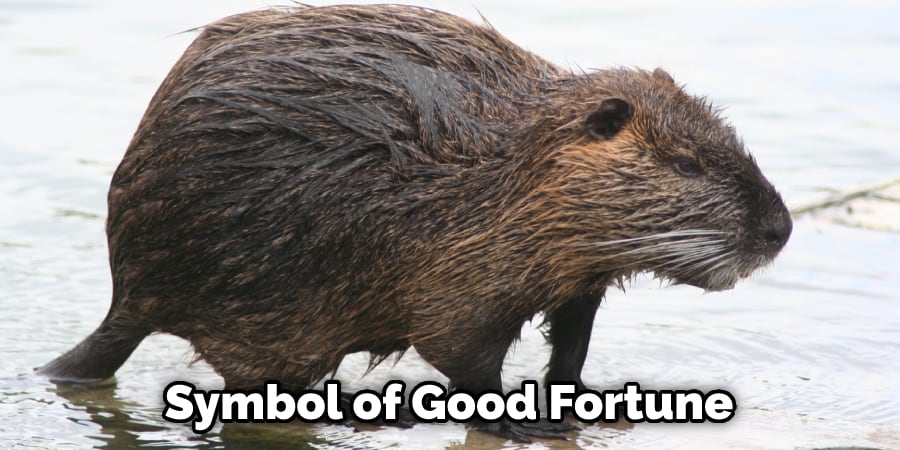
The creature is also seen as a symbol of prosperity and abundance, and it is believed that its fur can bring good luck. In Japan, the coypu is known as the river rat or nutria, and it is considered to be a helpful animal that will bring good fortune to those who treat it with kindness.
In contrast, the coypu is seen as a destructive pest in many Western cultures. The animal’s love of water means that it often damages levees and dykes, causing floods. It also competes with native species for food, leading to declines in populations of fish, amphibians, and reptiles.
As a result of its negative impact on ecosystems, the coypu is viewed as an unwanted intruder in many parts of the world.
Coypu Christianity Symbolism
Christianity has always been a religion with rich symbolism. In the early days of the church, symbols were used to communicate religious ideas to a largely illiterate population. Over time, these symbols have taken on a life of their own, becoming an essential part of Christian iconography.
One of the most curious symbols in Christianity is the coypu, a South American rodent also known as the nutria. The coypu first came to prominence in medieval art, where it was often used as a symbol of Christ.
This is because the coypu bears a striking resemblance to Jesus: it has long hair and a beard, and its hindquarters are larger than its front legs, giving it a somewhat human-like appearance. In addition, the coypu is often depicted holding a lamb, another common symbol of Christ.
While the meaning of the coypu as a Christian symbol is not entirely clear, it seems likely that it was originally intended to represent Christ’s humble origins as a poor carpenter from Galilee.
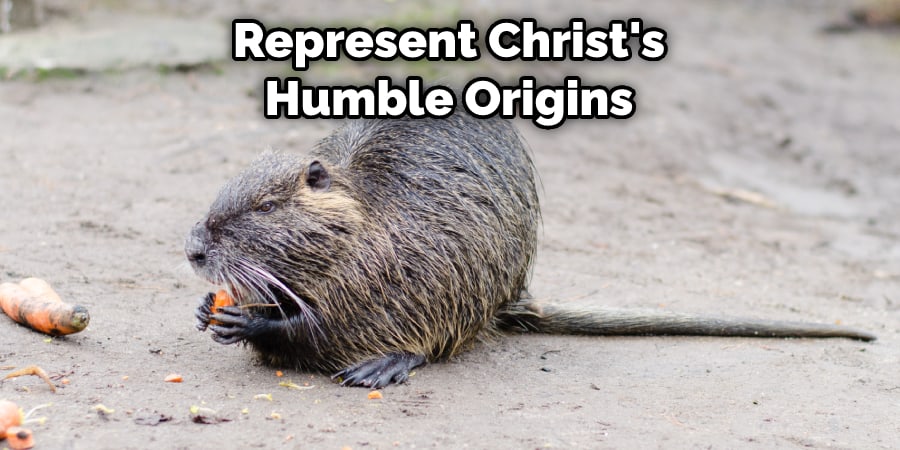
Over time, however, the Coypu came to be seen as a more general symbol of Christianity itself, representing the faith’s spread from its humble beginnings in Judea to the far corners of the world.
Today, the Coypu Christianity Symbolism continues to be used in art and architecture, reminding us of Christianity’s long and fascinating history.
Coypu Celtic Symbolism
Coypu Celtic Symbolism The coypu is a small, shy creature that is found in South America. Although it is often mistaken for a rat, the coypu is actually a member of the rodent family.
Despite its timid nature, the coypu has been revered by many cultures for centuries. For example, the Incas, who inhabited what is now Peru, saw the coypu as a symbol of fertility and abundance.
The animal was also thought to have magical powers and was often used in shamanic rituals. The Mayans, who lived in present-day Mexico, believed that the coypu represented strength and perseverance. They considered the animal to be a symbol of power and virility.
In Celtic mythology, the coypu is associated with water. It is said to be able to travel between the worlds of the living and the dead. The Celts believed the coypu could help humans find their way in life. The animal is also associated with creativity and imagination.

Today, the coypu is still considered to be a powerful symbol. It can be seen in art, literature, and film from all over the world. Despite its small size, the coypu inspires people of all cultures.
Coypu African Symbolism
In many African cultures, the coypu is revered as a symbol of good luck and prosperity. The rodent is often seen as an intermediary between the human and spirit worlds, and its presence is believed to bring blessings of health and fertility.
In some tribal traditions, the coypu is also thought to possess magical powers and is sometimes used in healing rituals. In addition to its spiritual significance, the coypu is also prized for its fur, which is used to make clothing and other items.
The animals are also considered a valuable food source, and their meat is often dried and cached for later use. As a result of its cultural and practical importance, the coypu occupies a central place in African life.
You Can Check It Out To Galago Spiritual Meaning, Symbolism and Totem
Coypu Spiritual Meaning
In Native American folklore, the coypu is often seen as a trickster spirit responsible for causing mischief and disrupting the natural order of things. However, the coypu also has a more positive side, associated with fertility and new beginnings. In some cultures, the coypu is believed to be a spirit guide who can help humans find their way in life.
The coypu is also sometimes seen as a symbol of abundance due to its habit of gathering food in its large tail. Whatever its spiritual meaning may be, the coypu is an intriguing creature that has long captured the imaginations of humans.
Coypu in Dreams
Dreams have been a source of fascination for centuries, with people striving to understand the meaning behind them. Though their exact purpose is still unknown, it is thought that dreams may help us to process emotions and sort through memories.
Dreams can be vivid and strange, often featuring symbols and images that we wouldn’t normally encounter in our waking lives. One such symbol is the coypu or nutria. These rodents are native to South America but have been introduced to many other parts of the world. In dreams, they often represent untamed passions or desires.
They may also symbolize fertility or abundance. As such, seeing a coypu in your dream could mean that you are in touch with your creative side or that you are exploring new territory in your life. Alternatively, it could be a warning to beware of greed or gluttony. Whatever the case may be, dreams offer a unique window into our inner selves.
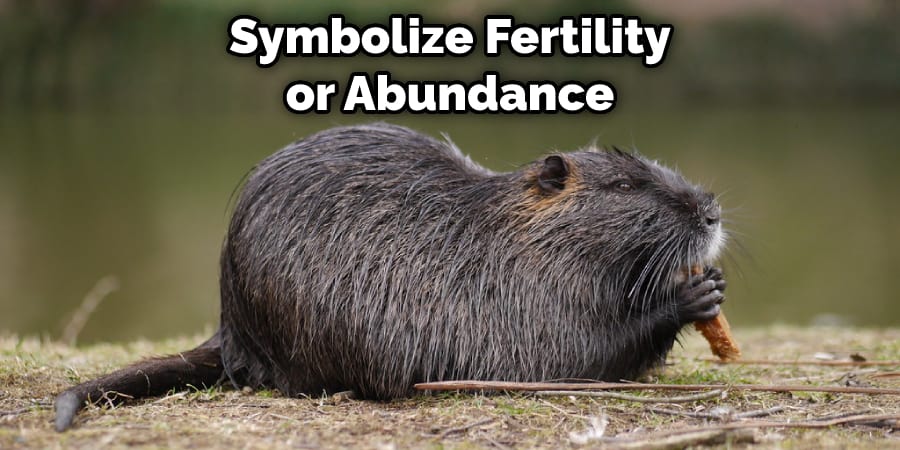
Coypu Encounters and Omens
The coypu is a small, furry creature that resembles a cross between a beaver and a rat. It is native to South America but has been introduced to many other parts of the world, including Europe and North America. In some cultures, the coypu is considered to be a lucky animal, and encountering one is seen as an omen of good fortune.
In others, however, the coypu is viewed as a pest and an intruder, and its presence is often regarded as an omen of bad luck. Whatever your beliefs about this intriguing creature, there’s no doubt that encountering a coypu can be a memorable experience.
Coypu’s Meaning in Mythology and Folklore
Throughout history, the coypu has been considered a mystical creature, often appearing in mythology and folklore. In many cultures, the coypu is seen as a trickster spirit known for its cunning and ability to outwit humans. In some stories, the coypu is also said to have magical powers, able to transform itself into other animals or objects.
In many ways, the coypu represents nature’s wild and untamed side as a reminder that humans are not always in control. For this reason, the coypu has long been seen as a symbol of strength and freedom.
Coypu Totem Animal
The coypu is a large, semiaquatic rodent that is native to South America. Often considered a pest, the coypu has been introduced to several other continents, where it has caused significant environmental damage. The coypu is stout-bodied and heavily built, with short legs and a rounded head.
It has thick, dark fur that helps to keep it warm in the cold waters of its habitat. The coypu is an opportunistic omnivore, feeding on various plants and animals. In some cultures, the coypu is considered to be a totem animal, representing strength and perseverance.
Despite its negative environmental impact, the coypu continues to thrive in many parts of the world.
Conclusion
Overall, coypu has a strong spiritual symbolism. Its unique physical characteristics and behaviors are believed to possess special power in the spirit world. As a totem animal, coypu symbolizes courage, wisdom, resourcefulness, and adaptability.
Those who identify with coypu as their totem animal can draw on its deep spiritual meaning to gain insights into themselves and their lives.
The coypu is a powerful representation of the connectedness between humans and nature – so take some time to enjoy its presence in the wild or your own backyard! Thanks for reading our post about the coypu spiritual meaning.
You Can Check It Out American Dipper Spiritual Meaning, Symbolism and Totem

